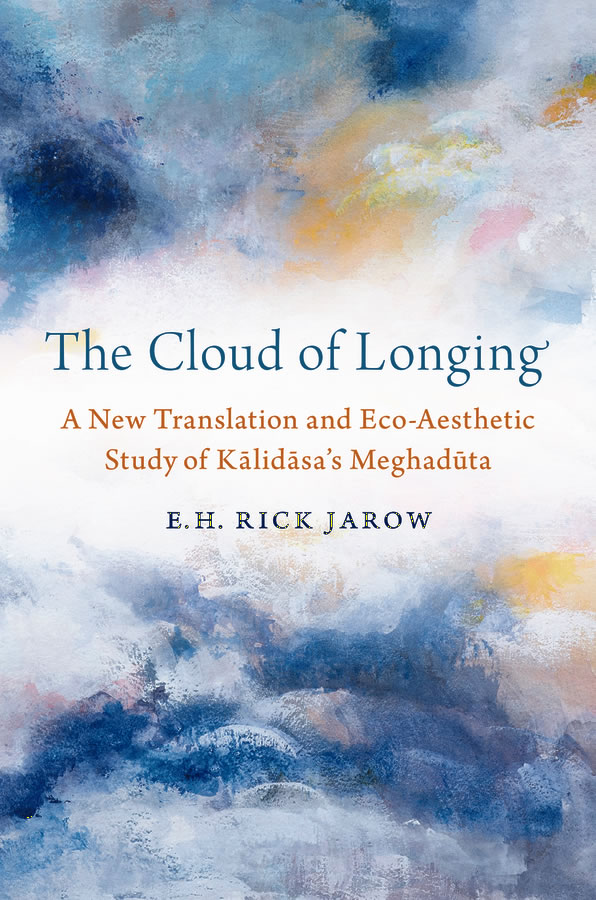Reviews
“Jarow has done justice like none other to the Meghadūta, a masterpiece of world literature that casts its shadow and rings in echoes throughout all subsequent Sanskrit works. Jarow’s elegant translation is followed with insights not only into the delicate versification of Kālidāsa’s work but observations on its message: ‘The lovers sees the beloved everywhere.’ ‘What if… the poetic perception of reality is closer to what actually is than the calculating, measuring one?’ Borrowing from William Carlos Williams, Jarow suggests that the poet makes meaning ‘not in ideas, but in things.’
Bravo!” — Christopher Key Chapple, Doshi Professor of Indic and Comparative Theology, Loyola Marymount University
“Every generation requires literate translators capable of capturing the subtlety of a classic and bringing it into synchrony with the times. Jarow has accomplished this brilliantly for Kālidāsa’s Meghadūta or Cloud Messenger, often considered the apogee of Sanskrit poetry. Depicting the world from the perspective of a cloud asked by a benevolent nature-spirit (yak=.sa) to deliver a message to his wife in the high Himalayas, the Meghadūta was composed in Ujjāyinī, present day Ujjain, in central India, around 375 CE. Here Jarow describes the rasa or aesthetic flavor that permeates the poem. With this message, as if transmitted on a cloud, the sensitive and appreciative reader (rasika) will enter into deeper connection with Kālidāsa’s world, into his vision of the mysteries of the unity and multiplicity of the self within the natural world.” — Frederick M. Smith, Professor, Sanskrit and Classical Indian Religions, University of Iowa

